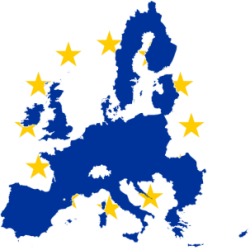European iPoker Liquidity to have Little Short Term Impact

Representatives from the gambling regulatory bodies of France, Italy and Spain have been discussing various ways in which to create a shared player pooling system in order to increase online poker liquidity across their respective countries. While progress has been made, there are still some major obstacles preventing the liquidity compact from becoming a reality. In the meantime, many industry insiders feel that despite all the effort, the end result will have only a small impact on the online poker industry.
The Obstacle to Integration
France is currently the driving force behind efforts to pool players from other European nations and increase liquidity at the virtual tables. However, it’s the French regulatory system that is standing in the way of progress, as their online poker regulations use a different method of taxation system than most other countries in the world.
Instead of taxing gross gaming revenue, France levies a 2 percent tax on each cash game pot. Adding to the problem is the fact that French gambling sites typically assess a higher rake than sites in other countries. If player pooling were to occur, sites would need to make changes to their infrastructure in order to ensure that taxes were paid appropriately for French players. While it’s possible that these upgrades could be made, it’s a less than ideal situation. Other nations at the bargaining table feel France should make changes to their taxation system before any agreement is made.
Because of the challenges, there are officials in Italy who believe the liquidity deal might not be worth completing at all, and some operators seem to agree. In a recent statement, an affiliate in Italy went on record saying that he did not believe it would be possible for sites to make the changes needed to accommodate varying rakes and taxation rates. Even if they could, with most sites currently operating in the red, operators simply might not be willing to invest in the research and development needed to get the job done. As Giovanni Carboni from Carboni & Partners-Eglah explained recently:
“To offer games with the Italian rake would be a disaster for the operators in the French market who are already operating at a loss. If instead the French rake was adopted, many Italian players would run indignantly to the illegal market. Only the French tax authorities would benefit, feasting on the flesh of everyone, including the Italian State.”
Is It Even Worth It?
Some industry insiders believe that ultimately the liquidity compact will do little to benefit players or online operators. Spain, Italy and France have issued only a small number of licenses and not all operators have licenses to operate in all three countries. The site with the biggest presence in all three countries, for instance, is PokerStars, while PartyPoker is not even licensed to operate in Italy at all, while only having an average of fewer than 10 Spanish players online at any given time. Meanwhile, iPoker has a presence in all three countries, but with multiple skins on its network, it would be unlikely that players would notice a major difference at the tables. In other words, only PokerStars really stands to benefit greatly from a liquidity compact right out of the gate.
Challenges of UK/New Jersey Liquidity
The problems that European regulators are grappling with are something that U.S. regulators are keeping an eye on. It’s possible that similar challenges may be faced with interstate compacts and with the proposed liquidity sharing deal between New Jersey and the UK that is currently under consideration. As New Jersey Division of Gaming Enforcement (DGE) Director David Rebuck explained recently:
“We’d still have to figure out lots of issues: specific regulations, how the tax rate from each jurisdiction would be applied, player ID and geolocation issues, and other things we probably haven’t even considered yet.”
Furthermore, the developing situation should also act as a cautionary warning for California, which despite being the USA’s most populated state would only represent a small online poker market if isolated from other iPoker playing jurisdictions. Case in point, France has a population of 66 million people, compared to 37 million for California, and still French iPoker sites are rarely able to feature tournaments with enticing million dollar prize pools.
Ultimately, the various online poker markets will eventually have to come to terms with the fact online poker requires deep player pools, and that a dot-com set up will be essential for ensuring players do not turn to offshore sites for their entertainment.










